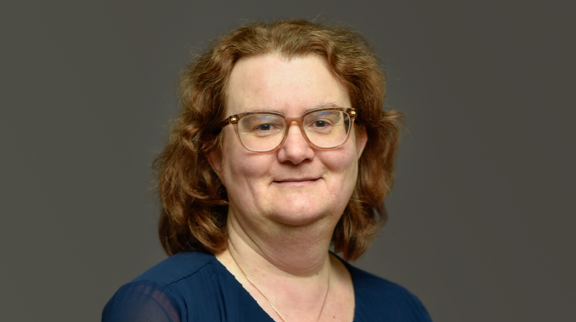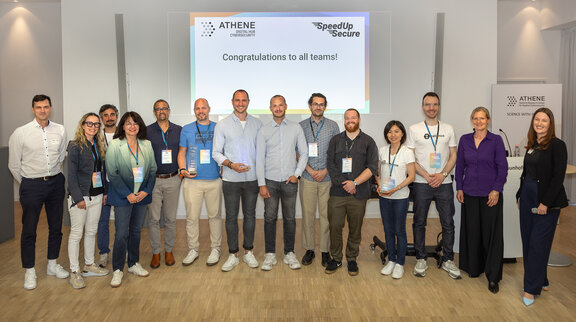News

Prof. Iryna Gurevych receives first ATEHNE Distinguished Professorship
Prof. Iryna Gurevych from the TU Darmstadt receives the first ATHENE Distinguished Professorship, recognizing her outstanding contributions to connecting artificial intelligence and cybersecurity. The award honors her internationally recognized research in computational linguistics and its innovative application to protect against manipulative language attacks and disinformation.
read more
Prof. Mira Mezini confirmed in the DFG Senate
The General Assembly of the German Research Foundation (DFG) elected Prof. Mira Mezini to the Senate of Germany's largest research funding organization for a second term of office at the DFG Annual Meeting in Hamburg. As a representative of TU Darmstadt on the ATHENE Board, she strengthens the representation of cybersecurity research in the central body of scientific self-administration.
read more
AirGuard extends protection with Google tracker - New research results on PETS 2025
The AirGuard-App for Android and iOS was developed a few years ago and offers protection against potential stalking. It scans the environment to detect trackers such as AirTags, SmartTags or other trackers and informs users of the potential danger of being followed. The app has now been expanded to include protection functions against the new Google trackers and has reached the milestone of 1.5 million downloads worldwide thanks to continuous further development.
read more
The winners of the ATHENE Accelerator SpeedUpSecure 2025 have been announced
5 start-ups made it to the final round of this year's ATHENE Accelerator SpeedUpSecure. They underwent intensive workshops and training and pitched at the Final Pitch Day in front of a top-class jury and expert audience for a total prize money of 17,500 euros. The winners were: Complioty (1st place), Zealience (2nd place) and Contexxt.AI (3rd place).
read more
Iryna Gurevych elected to the Academia Europaea
ATHENE Principal Investigator Prof Iryna Gurevych has been elected to the Academia Europaea. This honours her many years of academic excellence and international visibility in the fields of Artificial Intelligence AI and Natural Language Processing. At ATHENE, Iryna Gurevych conducts research in the field of security and privacy in AI and the technical discovery of manipulated media content.
read more